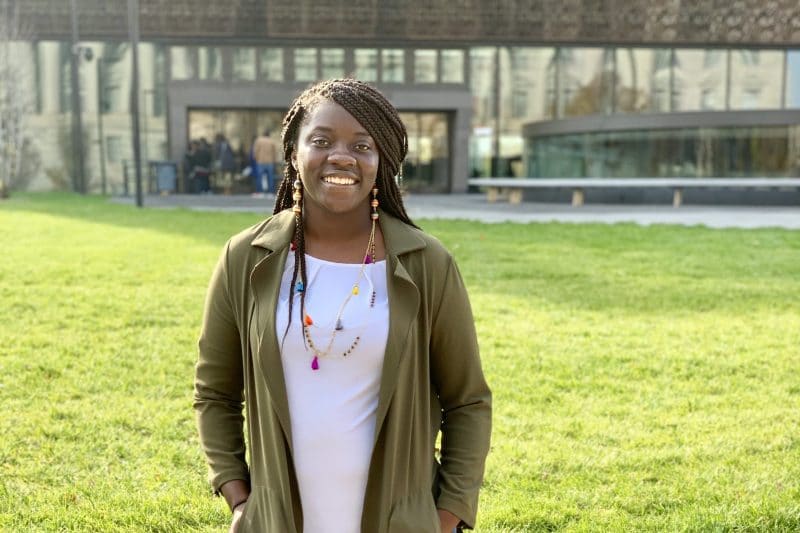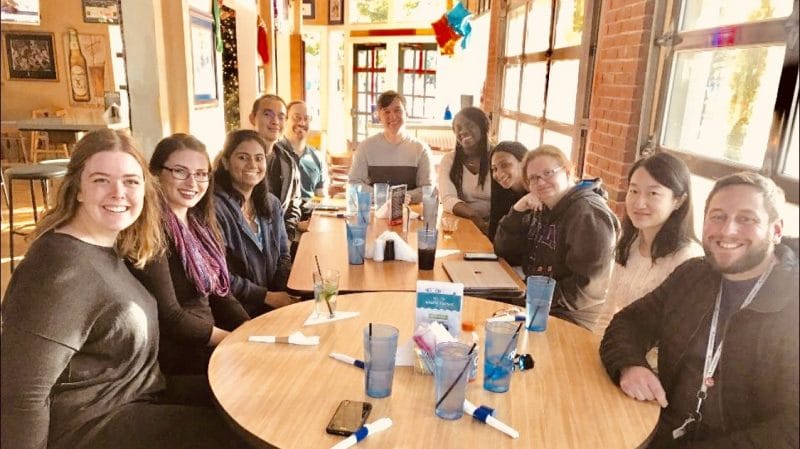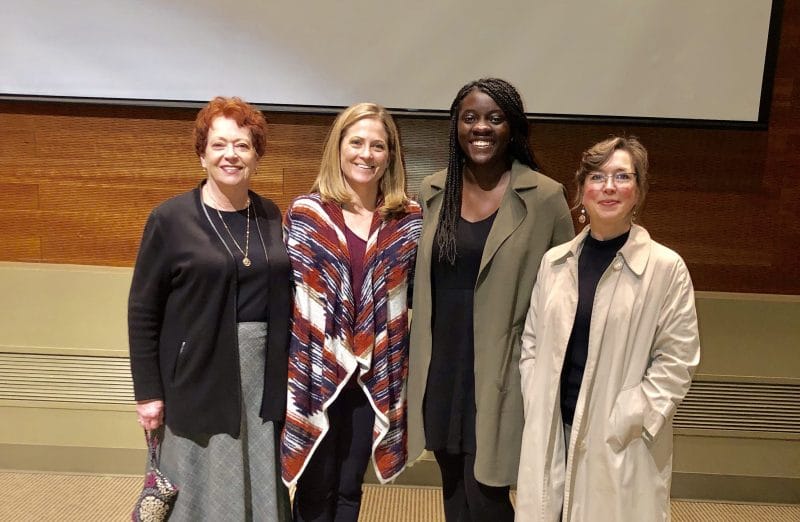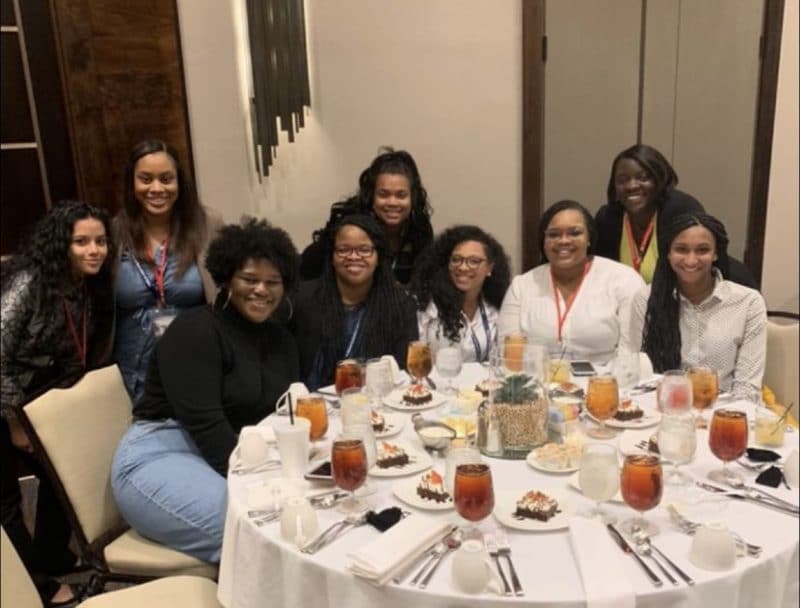
The NSF Graduate Research Fellowship (GRFP) supports outstanding graduate students who are pursuing research-based master’s and doctoral degrees at accredited United States institutions in fields within NSF’s mission, including the social sciences, technology, engineering, mathematics, and science. The fellowship provides three years of funding for the graduate education of individuals who have demonstrated their potential for significant achievements in research and for broadly impacting communities for the better.
We talked to LaRaven Temoney, a National Science Foundation Graduate Research Fellow and first-year doctoral student in the Department of Political Science at the University of Florida, to learn more about the program and get some application tips.
1. What inspired you to apply for the NSF Graduate Research Fellowship?
I grew up in an area of South Carolina known as the “Corridor of Shame.” South Carolina as a whole is near the bottom of the nation when it comes to education, and the area I am from suffers greatly from a lack of opportunities to create an adequate educational experience for all of its students. Due to this, my family instilled in me a love for education. I learned to value the importance of continuing to get an education instead of settling for the bare minimum.
This sentiment has followed me throughout my education journey. It is one of the reasons why I was inspired to engage in many opportunities for education growth at my undergraduate institution, Winthrop University in Rock Hill, SC. By engaging in undergraduate research, I found my niche and knew that I wanted to pursue a career that would allow me to research, teach and mentor others (in a way that so many people did for me throughout my journey).
As someone who desired to pursue graduate studies in the social sciences (Political Science and Public Policy), I knew my funding options would be limited compared to those of the STEM fields. I discovered NSF because I knew someone who had received an NSF GRFP, however, at the time, I wasn’t sure if they offered awards to non-STEM fields. I was excited to discover that they did and made a vow that I was going to give my best effort to apply for one of the fellowships, despite how busy I was at the beginning of my senior year.

2. What are the benefits of the fellowship?
NSF GRFP is one of the best fellowships for Ph.D. students. They provide a competitive $34,000 stipend year-long (which is good for moving expenses and not having to stress about finding funding sources for the summer months). Also, the fellowship allows you to not have to worry about taking on an assistantship (during your tenure years) so that you can focus on developing your research agenda. In addition to that, NSF pays for your tuition AND FEES in full ($12,000 annual value) and provides healthcare coverage. Another benefit is that NSF provides an additional funding allowance for research and professional development opportunities ($2,000 for each tenure year), including travel for conferences and fieldwork, just to name a few.
In addition, NSF offers workshops and internship programs that allow Fellows to have a holistic experience during the long graduate school journey. I wanted to conduct a short ethnographic study and I was able to do so despite having exhausted my departmental funds for the year thanks to having access to additional NSF funds, which gave me the money I needed for research and conference travel. As someone who was transitioning to a new discipline, attending conferences to network and learn about the work that’s happening now in the field was crucial for my success.
Due to NSF’s support, I was able to meet world-renowned scholars and get advice from scholars whose texts I had been reading from and learning about all year. I truly believe I made great gains in the first year of my Ph.D. program thanks to the support I received from NSF. I never had to stress about paying for various things because the stipend I received along with the research/travel funds alleviated any burdens that would have hindered my growth as a scholar, learner and researcher.

3. What tips would you give others applying to the NSF Graduate Research Fellowship?
Start working on the application early, not in mid-October. I started in early September and wish I started earlier. If the application process and writing seems easy, you’re doing it wrong and not putting enough time in. Make time weekly for writing, editing, rewriting, editing, etc. You may think that your first few drafts are perfect, but there is always something you could be adding.
Look on NSF’s website to see how they define “intellectual merit” and “broader impact.” From there, throughout your essays highlight how you’ll address that and put the terms in parenthesis throughout.
Get outside eyes to review all of your drafts, whether it’s a friend who’s a strong writer, professor, advisor, colleague, mom, etc. This is crucial to ensure it makes sense and people can catch things that you may not be able to because you’re so attached to your writing.
Make your writings a story. Your desired graduate and research goals should be something you have passion for and your interests should be displayed based on your life experiences, and not only which subject you perform well in academically. Show that you have room for growth and you show great promise.

LaRaven A. Temoney is a first-year doctoral student in the Department of Political Science at The University of Florida. LaRaven is a National Science Science Foundation Graduate Research Fellow and a McKnight Doctoral Fellow through the Florida Education Fund. Her research interests lie in American Politics and include race, ethnicity and politics, Southern politics, minority politics, government responsiveness and public policy inequality. Originally from South Carolina, LaRaven went to Winthrop University for her undergraduate degree in business administration and now calls the Sunshine State her new home. Outside of research, LaRaven enjoys spending time with loved ones, reading new books, following politics, traveling, midday naps, discovering new food items and lots of sunshine!
Interested in applying? Bookmark the NSF Graduate Research Fellowship to your ProFellow account.
© Victoria Johnson 2019, all rights reserved.